Ex-Tory minister Andrew Griffiths found to have raped wife
- Published
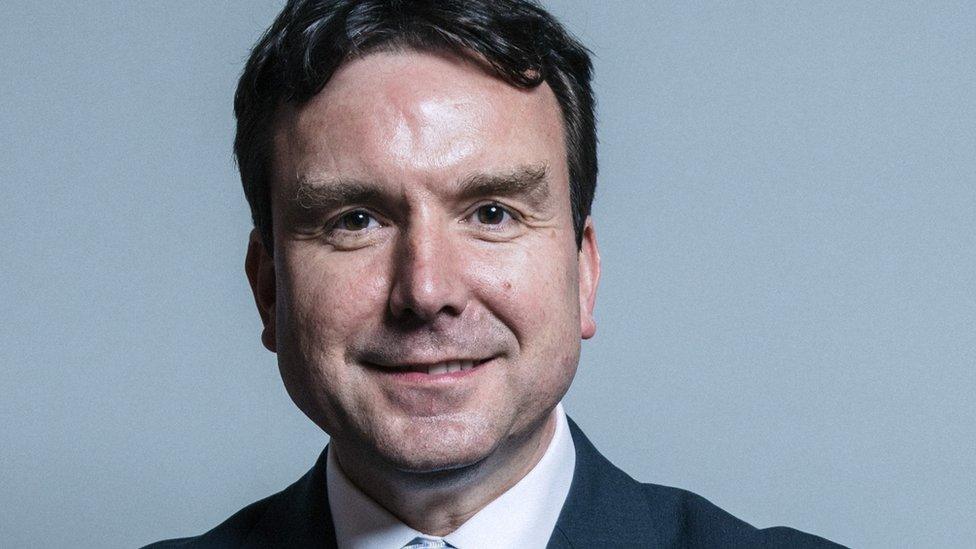
Andrew Griffiths resigned as minister and MP in July 2018
A former Conservative minister has been found to have raped and physically abused his wife.
A family court judge concluded Andrew Griffiths, 51, pressurised Kate Griffiths, MP for Burton-upon-Trent, into engaging in sexual activity.
Mr Griffiths, a former MP for the Staffordshire town, used "coercive and controlling behaviour".
In July 2018 he resigned after it was reported he sent "depraved" messages to two women constituents.
The ex-MP denied allegations made by Ms Griffiths and "adamantly denied" rape.
Judge Elizabeth Williscroft had been overseeing a dispute between Mr and Ms Griffiths, who are now divorced, at a private family court hearing in Derby.
Ms Griffiths, 51, made a series of allegations against Mr Griffiths and asked Judge Williscroft to make findings of fact.
The judge made findings in favour of Ms Griffiths but decided that they should not be made public, in order to protect the child at the centre of the family court proceedings.
A High Court judge, however, ruled that Judge Williscroft's findings should be revealed, after it was argued by the Press Association and Tortoise Media they were in the public interest.
Ms Griffiths had backed the move, which Mr Griffiths was against, and agreed to be named in media reports, even though victims of sexual abuse have a legal right to anonymity.
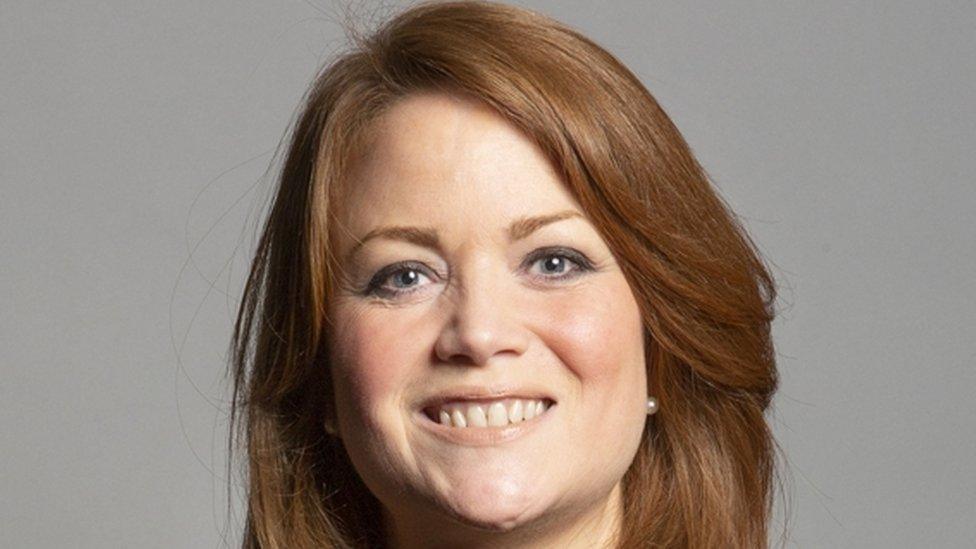
Kate Griffiths was elected as an MP in November 2019
Speaking after appeal judges ruled details could be made public, Ms Griffiths said she "welcomed" the decision following a case that had "taken a huge emotional and financial toll" on her family.
She said she waived her right to anonymity "because I recognise the unique position I am in to campaign to improve the outcomes of cases such as this, for those who endure domestic violence, and the actions taken to protect the children involved".
Mr Griffiths - who used to be MP for Burton and the minister for small business, and once worked as former prime minister Theresa May's chief of staff - resigned over allegations he bombarded a 28-year-old barmaid and her friend with lewd comments over social media during a three-week period.
He was cleared of wrongdoing by the parliamentary standards watchdog, which said it found no evidence.
Ms Griffiths stood in his place as the Conservative candidate for the area and was elected in November 2019. She announced at the time she was divorcing her husband.
Judge Williscroft made a number of findings of fact - on the balance of probability - about the way Mr Griffiths had treated Ms Griffiths.
The judge said Ms Griffiths had "proved in her oral evidence to me" that Mr Griffiths "did rape her when sexual intercourse took place".
She said Ms Griffiths's allegations had been "confirmed" by Mr Griffiths's "responses".
Ms Griffiths said rapes had begun while she was asleep.

Andrew Griffiths is pictured arriving at the Royal Courts of Justice in London in July 2021
In the timeline of events relayed in the judgment, dates for the offence are not given.
The judge heard that the couple married in 2013 after forming a relationship about five years earlier, and that Ms Griffiths had learned of sexual indiscretions by Mr Griffiths including a "long affair" and, with someone else, "the sending of sexual texts".
The MP, who gave evidence behind a screen at court hearings so she could not see Mr Griffiths, also gave accounts of "physical abuse". The judge said she found those accounts "proved".
Ms Griffiths had said that during an argument, Mr Griffiths knelt on her and put his hands on her throat, trying to strangle her.
Mr Griffiths said no assault had taken place but Judge Williscroft said she "preferred" Ms Griffiths's account.
The judge also found that Mr Griffiths had pushed Ms Griffiths when she was heavily pregnant.
Mr Griffiths said in a written statement: "I am deeply disappointed that the Court of Appeal has allowed the publication of proceedings in the family court.
"Whilst there remain legal constraints on what I can say, because the entirety of the judgment has not been published, I strongly denied the allegations put to me. However, the family court, which I believed to be private, made findings against me on the balance of probabilities."
He said his aim had been always to protect his child from publicity and he would continue to do what he could to "repair the damage that publication of this case has caused".

If you have been affected by the issues raised in this article, help and support is available via BBC Action Line.

Follow BBC West Midlands on Facebook, external, Twitter, external and Instagram, external. Send your story ideas to: newsonline.westmidlands@bbc.co.uk, external
Related topics
- Published13 November 2019
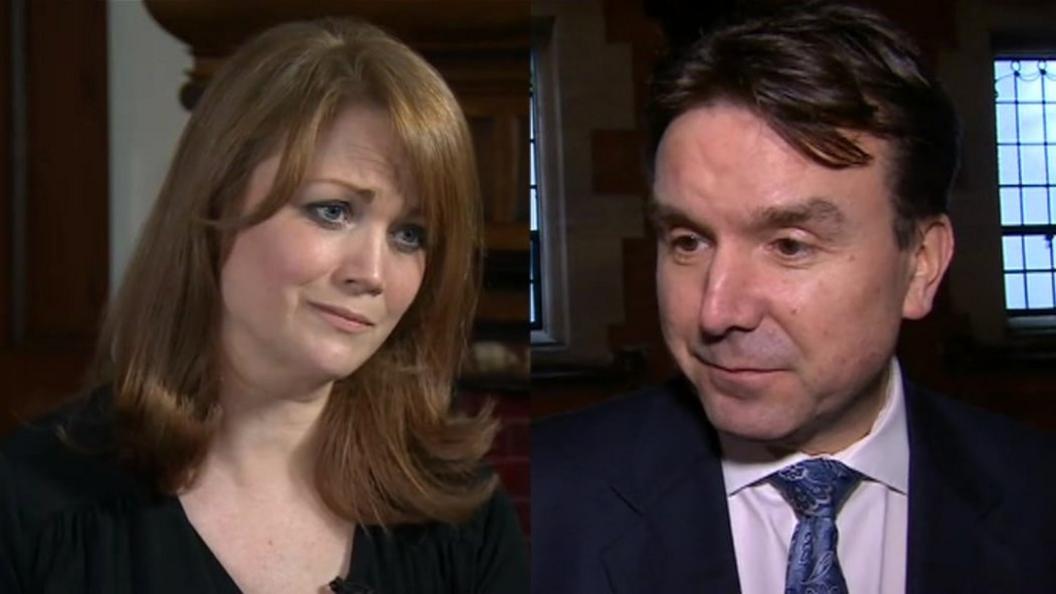
- Published13 December 2019
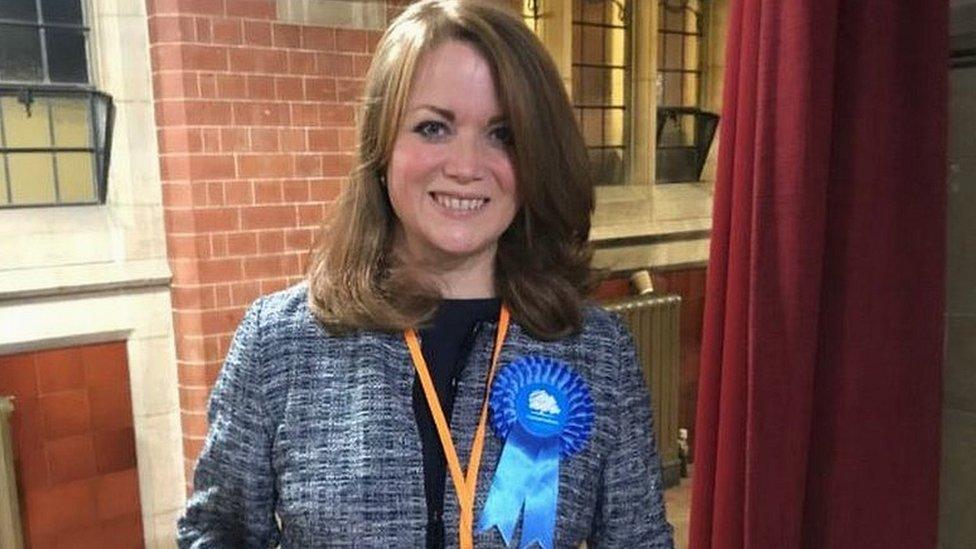
- Published8 September 2019
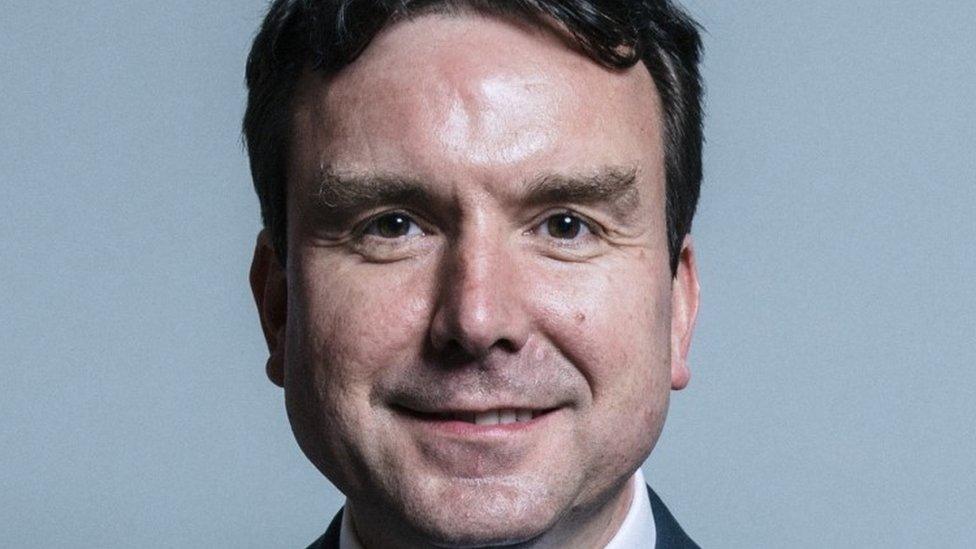
- Published22 November 2018
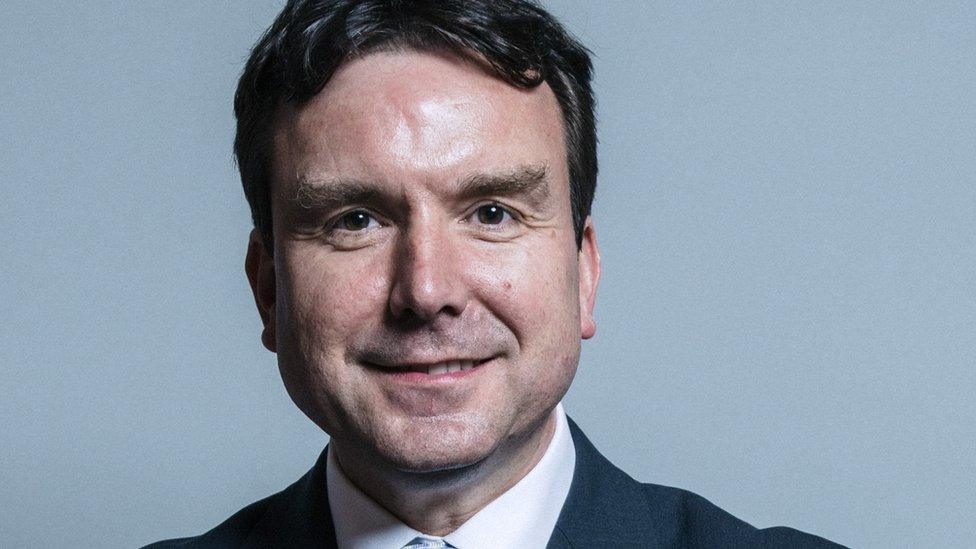
- Published15 July 2018
